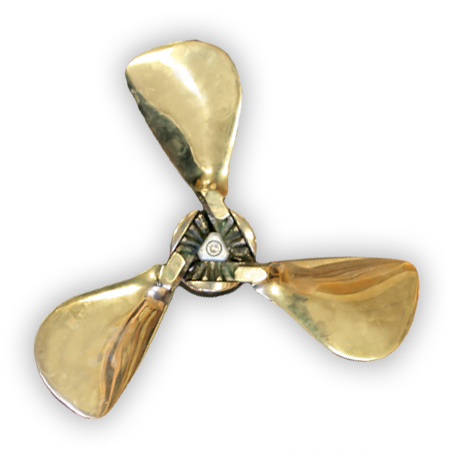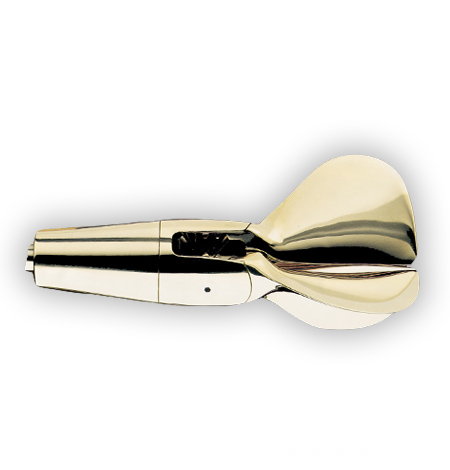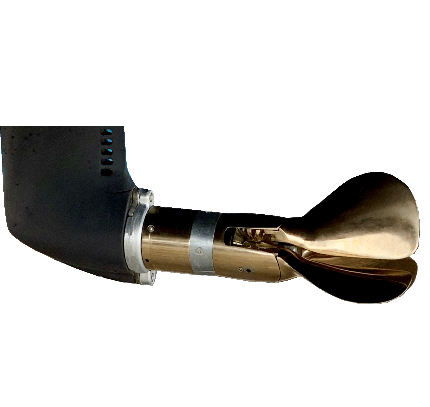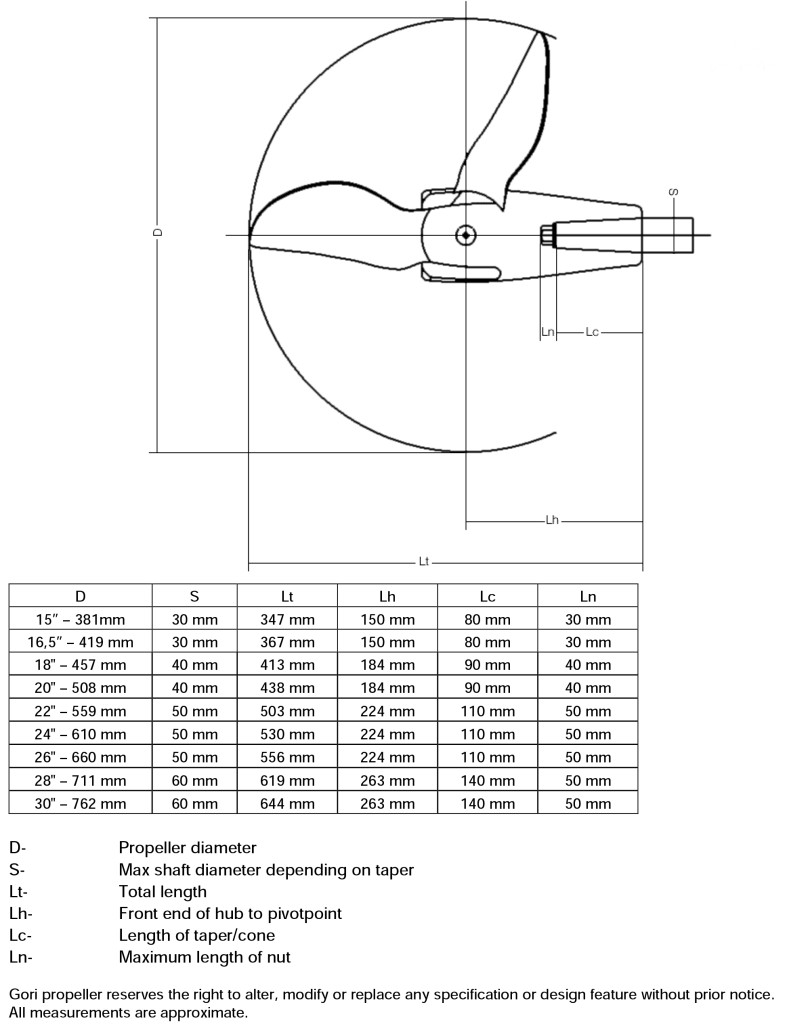GORI 3-Blade Propeller
The GORI 3-blade folding propeller is available for installation on vessels with engines from around 10BHP to 300+BHP.
This unique design offers an “overdrive feature”, with 2 controlled pitch settings in forward and full reverse thrust. The “overdrive feature” gives lower engine RPM for the same cruising speed when in calm waters or motor-sailing.
The 3-blade propeller is available in diameters from 15” ~ 30+”, and pitch settings between 60% and 80% of the diameter. They are available in both LH and RH configurations for both saildrive and shaft installations.
The GORI 3-blade propeller won the “DAME” design award at the Meets on November 1994 and the “HISWA” award in December 1994. In November 1994 the German Magazine “Die Yacht” published results of independent tests carried out by the Technical University of Berlin. These results showed conclusively the advantages of the GORI 3-blade propeller.
Ahead: GORI was 11+% more efficient than 3-blade feathering props tested.
Astern: GORI was 6.5+% more efficient than 3-blade feathering props tested.
Sailing: Drag was reduced by nearly 50% compared to the 3-blade feathering propeller under test.
The German sailing magazine “Segeln” tested propeller drag at the German Naval Architecture Test Center in Potsdam and results show the GORI 3 Blade propeller had less drag than all the other makes of 2-blades & 3-blades (except the GORI Race) with 1.4 Newton.
Calculate Prop Size
Please read these instructions carefully before installing your new GORI propeller
Download GORI 3 Blade Saildrive Installation Maintenance Instructions 2025
Download GORI 3 Blade Standard Shaft Installation Maintenance Instructions 2025
3-Blade Standard Shaft
| Diameter | Pitch Range | Rotation | Shaft Dia. to ~ 1.125 | to ~ 30mm | Shaft Dia. 1.25 ~ 1.375 | 30mm ~ 35mm | Shaft Dia. 1.50 ~ 2.00 | 38mm ~ 50mm | Shaft Dia. 1.75 ~ 2.50 | 45mm ~ 60mm |
|---|---|---|---|---|---|---|
| 15 | 9 to 12 | RH ~ LH | ✔ | – | – | – |
| 16.5 | 10 to 13 | RH ~ LH | ✔ | – | – | – |
| 18 | 11 to 14 | RH ~ LH | ✔ | ✔ | – | – |
| 20 | 12 to 16 | RH ~ LH | – | ✔ | ✔ | – |
| 22 | 13 to 17 | RH ~ LH | – | ✔ | ✔ | ✔ |
| 24 | 15 to 19 | RH ~ LH | – | – | ✔ | ✔ |
| 26 | 16 to 21 | RH ~ LH | – | – | ✔ | ✔ |
| 28 | 17 to 23 | RH ~ LH | – | – | – | ✔ |
| 30 | 18 to 24 | RH ~ LH | – | – | – | ✔ |
3-Blade Saildrive
| Diameter | Pitch | Rotation |
|---|---|---|
| 15 | 9 to 12 | RH ~ LH |
| 16.5 | 10 to 13 | RH ~ LH |
| 18 | 11 to 14 | RH ~ LH |
| 19/20 | 12 to 16 | RH ~ LH |
Propeller and Shaft Clearance Dimensions
Make note of the distances A through I below so that your propeller can fit with proper tip clearance.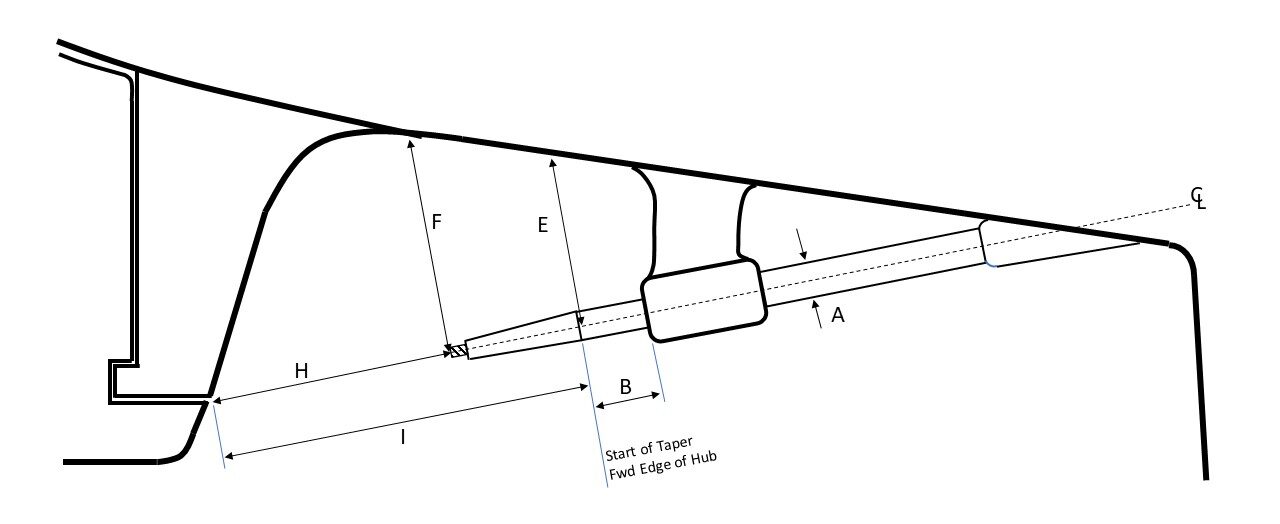
A. Shaft Diameter
B. Aft end of cutlass to start of taper/forward edge of hub
E. Shaft centerline to hull at forward edge of hub
F. Shaft centerline to hull at end of shaft thread
H. End of shaft to leading edge of rudder
I. Start of taper/forward edge of hub to rudder
Download Propeller and Shaft Clearance Form
Would you like us to contact you to discuss GORI propellers without obligation?
If you are interested in our GORI products, we would like to send you further information.
Please fill out the form below and we will contact you immediately. Or feel free to call us at 401-847-7960
